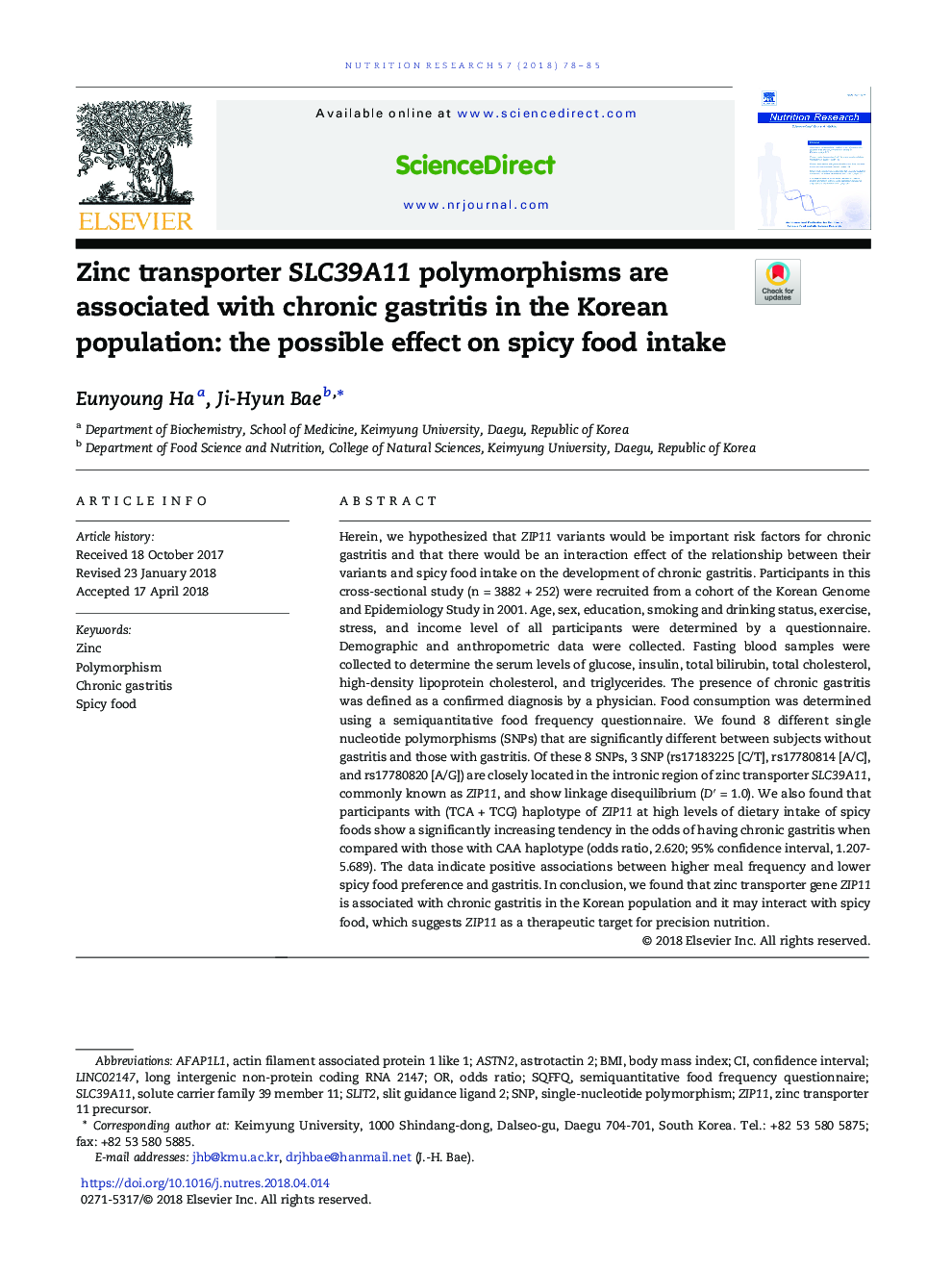| کد مقاله | کد نشریه | سال انتشار | مقاله انگلیسی | نسخه تمام متن |
|---|---|---|---|---|
| 8633981 | 1569088 | 2018 | 8 صفحه PDF | دانلود رایگان |
عنوان انگلیسی مقاله ISI
Zinc transporter SLC39A11 polymorphisms are associated with chronic gastritis in the Korean population: the possible effect on spicy food intake
دانلود مقاله + سفارش ترجمه
دانلود مقاله ISI انگلیسی
رایگان برای ایرانیان
کلمات کلیدی
موضوعات مرتبط
علوم زیستی و بیوفناوری
بیوشیمی، ژنتیک و زیست شناسی مولکولی
علوم غدد
پیش نمایش صفحه اول مقاله

چکیده انگلیسی
Herein, we hypothesized that ZIP11 variants would be important risk factors for chronic gastritis and that there would be an interaction effect of the relationship between their variants and spicy food intake on the development of chronic gastritis. Participants in this cross-sectional study (nâ¯=â¯3882 +â¯252) were recruited from a cohort of the Korean Genome and Epidemiology Study in 2001. Age, sex, education, smoking and drinking status, exercise, stress, and income level of all participants were determined by a questionnaire. Demographic and anthropometric data were collected. Fasting blood samples were collected to determine the serum levels of glucose, insulin, total bilirubin, total cholesterol, high-density lipoprotein cholesterol, and triglycerides. The presence of chronic gastritis was defined as a confirmed diagnosis by a physician. Food consumption was determined using a semiquantitative food frequency questionnaire. We found 8 different single nucleotide polymorphisms (SNPs) that are significantly different between subjects without gastritis and those with gastritis. Of these 8 SNPs, 3 SNP (rs17183225 [C/T], rs17780814 [A/C], and rs17780820 [A/G]) are closely located in the intronic region of zinc transporter SLC39A11, commonly known as ZIP11, and show linkage disequilibrium (Dâ²â¯=â¯1.0). We also found that participants with (TCAâ¯+â¯TCG) haplotype of ZIP11 at high levels of dietary intake of spicy foods show a significantly increasing tendency in the odds of having chronic gastritis when compared with those with CAA haplotype (odds ratio, 2.620; 95% confidence interval, 1.207-5.689). The data indicate positive associations between higher meal frequency and lower spicy food preference and gastritis. In conclusion, we found that zinc transporter gene ZIP11 is associated with chronic gastritis in the Korean population and it may interact with spicy food, which suggests ZIP11 as a therapeutic target for precision nutrition.
ناشر
Database: Elsevier - ScienceDirect (ساینس دایرکت)
Journal: Nutrition Research - Volume 57, September 2018, Pages 78-85
Journal: Nutrition Research - Volume 57, September 2018, Pages 78-85
نویسندگان
Eunyoung Ha, Ji-Hyun Bae,